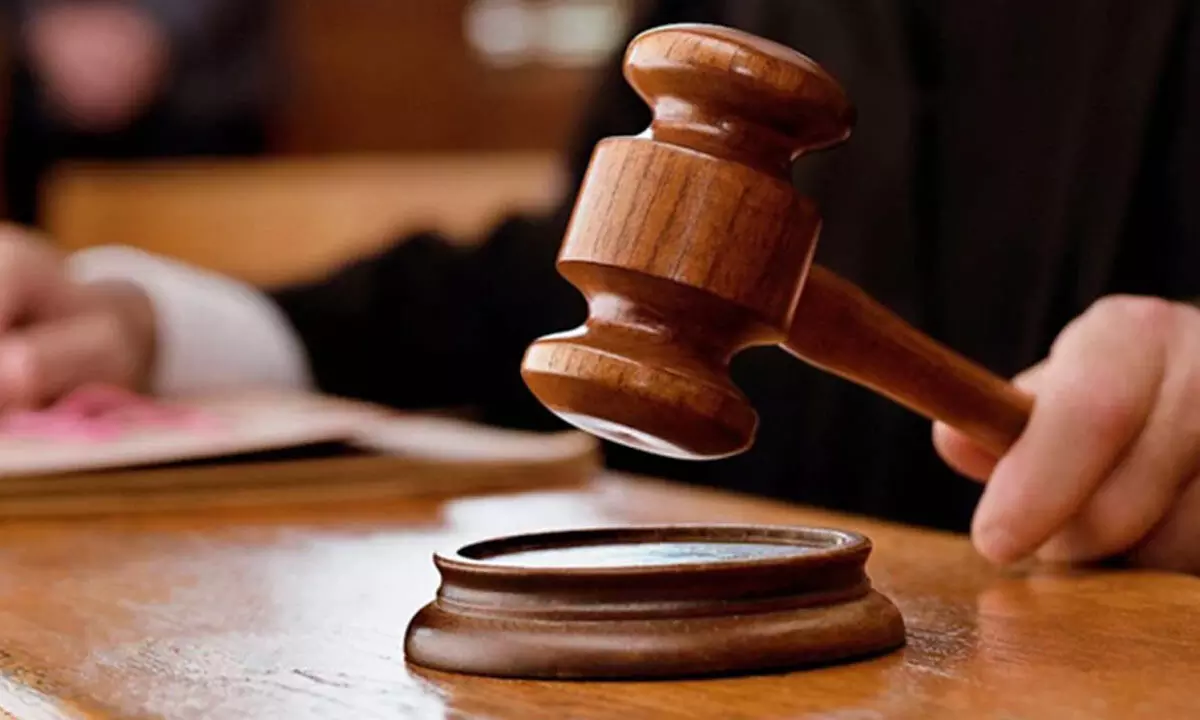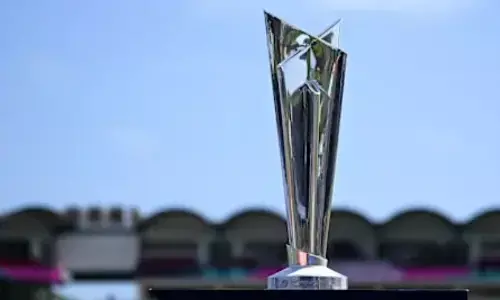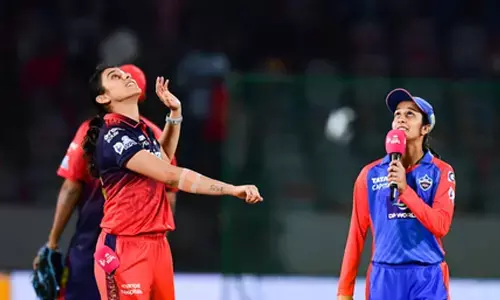SC goes live; but needs tech-tonic for a long and happy living!

Representational image
The apex court recently introduced live streaming of its proceedings on Constitutional matters which is unanimously hailed as timely and progressive step by all the stakeholders including lawyers, judges and litigants at large
The apex court recently introduced live streaming of its proceedings on Constitutional matters which is unanimously hailed as timely and progressive step by all the stakeholders including lawyers, judges and litigants at large. Indeed,this is a progressive and much-needed step taken by the highest court of the land and will go a long way to facilitate and educate all those who are concerned with the legal matters including the interpretation and development of law.
The present step initiated by the Supreme Court with co-operation of the Union government can only be successful if necessary technological and infrastructural support is provided for its functioning. True, this is just a beginning of the much better and wider things to come.The facility of virtual streaming in real time would have to percolate down to the taluka courts, tribunals and different other fora such as labour courts,EPF adjudicating machinery and consumer commissions. With the advancement of technology, it is possible to achieve this feat in the shortest possible time.
To make the new system working satisfactorily, however, it is necessary to ensure the uninterrupted connectivity to the virtual court from any corner of the country. In order to ensure this, there can be no better way than making available an exclusive satellite television channel to the judiciary. In addition to the virtual mode, exclusive television channel for the live streaming proceedings of the Supreme Court, high courts, subordinate courts, tribunals and other legal entities can be provided freely to the public.
On the infrastructure side much needs to be done. All practicing advocates obviously do not have the smart phones with necessary technical features to get the signal from the satellite in order to make them capable of participating in the proceedings actively. Therefore, the judiciary should seriously consider to provide easy loans to such advocates who can't afford to have an updated version of their mobiles to participate in the virtual hearing practices. Besides, depending upon the number of cases pending in the court, tribunal or forum as the case may be, a good number of rooms/cabins fully equipped with net enabled computers and duly qualified technical staff should be provided either in the court premises or at a central place of the city or town which can be used by the practicing advocates.
It is also necessary for the effective implementation of the tech-aided virtual mode system as well as the satellite TV with exclusive legal channels as mentioned hereinabove to provide necessary physical infrastructure, such as rooms/halls, waiting place, canteens, washrooms and toilet, drinking water etc ; not only for the benefit of the advocates, judges and court staff but also for public at large.
Indeed, all good things begin in a small way; but we should not miss the bus to accelerate the speed of progress.
NO REPRIEVE FOR
UDDHAV FROM SC
Aggrieved by the interim order of the Election Commission of India (ECI) dated February 17 recognising the Eknath Shinde group of ShivSena as the Shiv Sena party and alloting the election symbol of bow and arrow, the Uddhav Thackeray group knocked the doors of the apex court.
After a hearing on February 22 the three- Judge bench presided over by CJI DY Chandrachud ordered notice to the respondents returnable within two weeks. The plea for interim stay or status quo was turned down by the court.
SC HAS JURISDICTION TO TRANSFER CHEQUE BOUNCING CASES
In a recent judgement the Supreme Court has held that its jurisdiction vested under Section 406 of the Cr.PC to transfer a criminal case from one state to another is intact notwithstanding the non-obstante clause in Section 142(1) of the Negotiable Instruments Act.
In its verdict delivered by a bench comprising Justice Dinesh Maheshwari and Justice Sanjay Kumar in a case titled, Yogesh Upadhyay and Anr Vs. Atlanta Ltd, the apex court gave the aforesaid ruling.
Allowing the transfer petition for two cases which are filed in Nagpur to the court at Dwarka in Delhi where four cases are filed by the respondent company the court made the matter clear that Section 242(1) of NI Act is no hurdle for the appex court in exercise of the power granted to it under Cr.PC.
HC DEPARTS FROM AGE-OLD MAXIM
Perhaps for the first time after 37 years since the legal maxim, the dying man does not lie,was devised the Calcutta High Court on February 17 freed one, Mrityunjoy Rana who was convicted by a trial court way back in 1986.
Rana was convicted on the basis of the dying declaration of victim, Kartik Patra, a land-owner who had protested against a CPI (M) organised procession. Rana had inflicted arrow injuries who died after 10 days in a hospital after giving his dying declaration before a doctor and a nurse.
The single-bench headed by Justice SubhenduSamanta observed that the sole dying declaration can be relied upon by the court if it was free from any doubt. In the instant case, the circumstances were "peculiar", he added.
INFIDELITY NOT A GROUND TO SEEK DNA TEST: SC
In a judgement of far reaching consequences that would protect the rights of children, the apex court upheld the validity of Section 212 of the Evidence Act that presumes legitimacy of a child born out of a valid marriage.
The division bench v Justice V Rama Subramanian and Justice BV Nagarathna observed:"This, where the husband and wife have co-habited together, and no impotency is proved, the child born from their wedlock is conclusively presumed to be legitimate, even if the wife is shown to have been, at the same time, guilty of infidelity. The fact that a woman is living in adultery would not by itself be sufficient to repel the conclusive presumption in favour of the legitimacy of a child."
PIL SEEKING DISQUALIFICATION DISMISSED
The Public Interest Litigation (PIL) filed by a lawyers' body, Bombay Lawyers Association and its president, advocate Ahmad Abdi seeking invocation of the extraordinary powers of the High Court under Article 226 of the Constitution of India for removal of the Vice President of India, the Law Minister and Secretary General, Rajya Sabha for showing disrespect to the Supreme Court and attacking the Collegium system was dismissed by the Bombay High Court by its order dated February 9, released on February 21. The bench comprising Acting Chief Justice SV Gangapurwala and Justice Sandeep Marne, after taking note of the submissions of Additional Solicitor General that the Vice President as well as the Law Minister have complete faith in the Constitution, dismissed it as a false and frivolous one filed for publicity.














